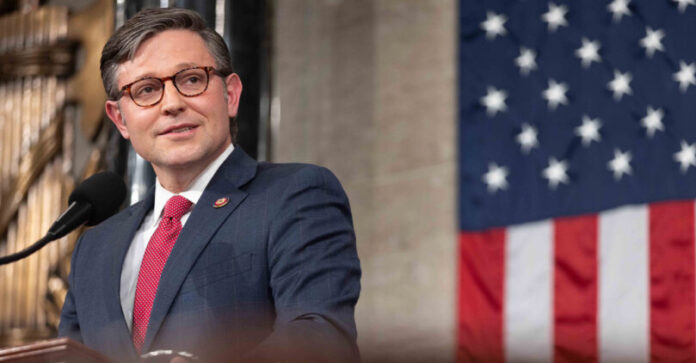
By Stacy M. Brown, NNPA Newswire Senior National Correspondent
As the Affordable Connectivity Program (ACP) faces an imminent funding shortfall, the lifeline that connected more than 23 million disadvantaged and low-income American families to broadband hangs in the balance. Despite its critical role in bridging the digital divide, House Speaker Mike Johnson (R-La.) has yet to bring a bill for ACP extension to the floor, putting millions at risk of losing affordable internet access.
President Biden’s ambitious goal of connecting every American to affordable, reliable, high-speed internet by 2030 is now in jeopardy, as Johnson holds the key to the ACP’s future. Despite bipartisan support, Johnson inexplicably hasn’t brought a bill funding the ACP to the floor for a formal vote. The White House and lawmakers on both sides of the aisle have urged the Speaker to act.
Just last month, Biden urged more people to sign up for the ACP, noting that only 43% of eligible households had enrolled in the program and highlighting the urgent need for its continuation.
The ACP, offering internet for $30 per month for qualifying families in most areas and $75 on tribal lands, has been a game-changer, enabling participants to overcome financial barriers and access essential services like telehealth, remote schooling, and work.
A bipartisan group of lawmakers has proposed a bill to sustain the ACP through 2024 with an additional $7 billion in funding, surpassing the president’s initial request. However, without a floor vote, the Federal Communications Commission has initiated steps to wind down the program, instructing internet providers to notify users about its projected end.
The FCC halted new enrollments after February 7, with the program expected to end in April. The digital divide persists due to broadband infrastructure limitations, particularly in urban areas with limited coverage in low-income neighborhoods. Tribal lands also face challenges, with broadband access lagging behind the rest of the country.
“If Congress does not provide additional funding for the ACP in the near future, millions of households will lose the ACP benefit that they use to afford internet service,” FCC chairwoman Jessica Rosenworcel said. “This also means that roughly 1,700 internet service providers will be affected by the termination of the ACP and may cut off service to households no longer supported by the program.”
Blair Levin, a senior fellow at the Brookings Institute and a former FCC chief of staff, lamented that “there are 15 Republican co-sponsors today of the ACP extension bill—meaning the only reason it’s not going to pass the House is because the Speaker will not let it on the floor. A minority of the House has decided we should not have it; it’s not a majority, and there’s a lot of political support for the extension.”
Even in Johnson’s Louisiana district, connectivity remains a pressing issue, with 29% of his constituents set to lose coverage because he fails to act. Johnson’s office didn’t return several telephone calls and emails seeking comment.
The program is also good for business. In February, researchers at George Mason University in Virginia wrote that the ACP added $3.89 to the U.S. GDP for every dollar spent.
Also, affordable broadband access led to more people working, increasing job rates and individual earnings. A recent poll of ACP members found that 78% said their internet connection helped them find better-paying work.
Low-income households will lose the discount the program offers, but officials and people in the industry say many will lose access to the internet because they can’t pay higher bills. Ninety-five percent of said it would be hard to handle the extra costs.
Civil rights activists have sent a letter urging Congress to act promptly, emphasizing the ACP’s role in closing the digital divide and ensuring equitable access to broadband services for low-income families and historically underserved communities.
National Urban League President Marc Morial, NAACP President Derrick Johnson, and other activists stressed in a letter to lawmakers the program’s significance in connecting Americans to the digital economy, expanding telehealth services, and supporting students in remote learning opportunities.
“Without the additional $6 billion, millions of Americans reliant on ACP will lose access to high-speed internet, a fundamental civil right in the 21st century,” the group wrote, urging Congress to secure ACP funding for 2024 and devise long-term solutions for equitable broadband access.



